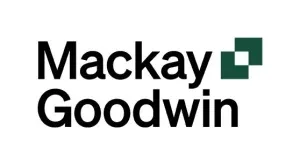What are the Safe Harbour provisions?
The Safe Harbour provisions under the Corporations Act 2001 provide protections to assist company directors from personal liability for insolvent trading. The provisions enable directors who suspect their company may be insolvent, to find an alternative course of action other than immediately opting for administration or liquidation.
To understand what is meant by 'Safe Harbour,' it is necessary to consider what Safe Harbour offers protection from.
In Australia, directors have a strict duty under section 588G of the Act to prevent insolvent trading by a company. A director can be held personally liable for debts incurred by a company while it is insolvent if at the time the debt was incurred there were reasonable grounds to suspect that the company was insolvent. Directors who are found to be personally liable for the debt may also be banned from managing corporations in the future.
Before the introduction of Safe Harbour provisions, directors who sought to rescue their company risked breaching their duties as a director and risked becoming personally liable for company debts under the insolvent trading provisions if their plan of action failed. It left them with little option other than to appoint a liquidator or administrator.
In 2018, changes were made to the Safe Harbour provisions, introducing two new protections for directors. Firstly, a Safe Harbour was established for directors who are in the process of creating a plan to address the financial difficulties of their company. Secondly, Safe Harbour was introduced for directors who sought to restructure a company outside of traditional administration and appointed a voluntary administrator to manage their company's financial difficulties.
The changes were made to create clarity and certainty for directors managing insolvent companies and to encourage them to take prompt action to address financial difficulties and restructure their company. It is important to note that directors should seek financial advice regarding Safe Harbour to ensure they understand the rules and protections available to them.
How can Directors access Safe Harbour?
Safe Harbour will only protect Directors during a "reasonable period" from their discovering and considering the right course to take, to them implementing action. It's a loose term, but the time period varies according to the size and complexity of the business. To be eligible, directors must ensure all employee entitlements and superannuation payments are current, as well as tax reporting is up-to-date. They also need to ensure bookkeeping is up-to-date and there are systems in place to deal with any identified misconduct by employees and office bearers of the company.
Safe Harbour commences when a director executes a strategy or reasonable course of action that they believe will result in a better outcome for the company. They must specify what the course of action is in writing, and the strategy should include:
- The company's financial position/situation
- The expected outcome of the insolvency action
- Evidence of advice from a qualified expert or advisor about the restructure plan
- The measurements/benchmarks they consider the turnaround to be a success
Directors need to be aware that if their turnaround is unsuccessful and the company enters liquidation, they will not be protected from personal guarantee claims. For that reason, directors should consult with financial advisors as early as possible to ensure their strategy has the best chance of success.
What is considered a reasonable course of action?
Because every company and financial scenario is different, each is assessed on a case-by-case basis. Therefore, it is difficult to provide a hard and fast benchmark for what is considered reasonable. If a liquidator seeks to make a director personally liable for debts accrued while trading insolvent, the onus of proof will be on the liquidator to prove the director's course of action was not reasonable.
That said, directors must continually monitor their chosen course of action and ensure it is tracking well. If at any point it becomes reasonably clear the action will not lead to a better outcome, the Safe Harbour protection will end, and directors should consider a formal insolvency path to protect themselves from exposure to personal liability.
According to the Corporations Act directors will be protected by the Safe Harbour provisions unless, or up until the point at which:
- They fail to take the course(s) of action developed within a reasonable period
- They cease implementing the course(s) of action
- the course(s) of action ceases to be reasonably likely to lead to a better outcome for the company, or an administrator or liquidator of the company is appointed.
What are the debts protected by entering Safe Harbour?
The debts protected by the Safe Harbour provisions are those incurred in the ordinary course of the company's business, and which the directors believe on reasonable grounds the company will be able to pay when they become due. Safe Harbour is not a guarantee that the debts will be paid but is to protect directors from personal liability as they try to navigate the company out of insolvent trading.
Why should you engage an expert early?
In late 2021, an independent panel was appointed to review insolvent trading and Safe Harbour1 and it found that while "a qualified expert" didn't necessarily need to be a liquidator, 'in most circumstances, the experience of either a registered liquidator with turnaround experience or a turnaround specialist with deep insolvency knowledge will be required to analyse the 'better outcome'.
Safe Harbour is not an automatic lifeline. The Safe Harbour provisions offer reduced personal liability for company directors facing the challenge of trading their company out of insolvency. While directors concerned about insolvent trading can take comfort from these provisions, to fully benefit from them, it's important to seek expert advice for a clear understanding of any potential implications and to promptly address any business issues.
Get in contact with Mackay Goodwin today for a free consultation and review of your circumstances. We operate on a no-obligation basis providing valuable and timely guidance on the options available to you.
Footnote
1https://treasury.gov.au/publication/p2022-p258663-final-report
The content of this article is intended to provide a general guide to the subject matter. Specialist advice should be sought about your specific circumstances.


